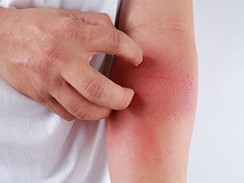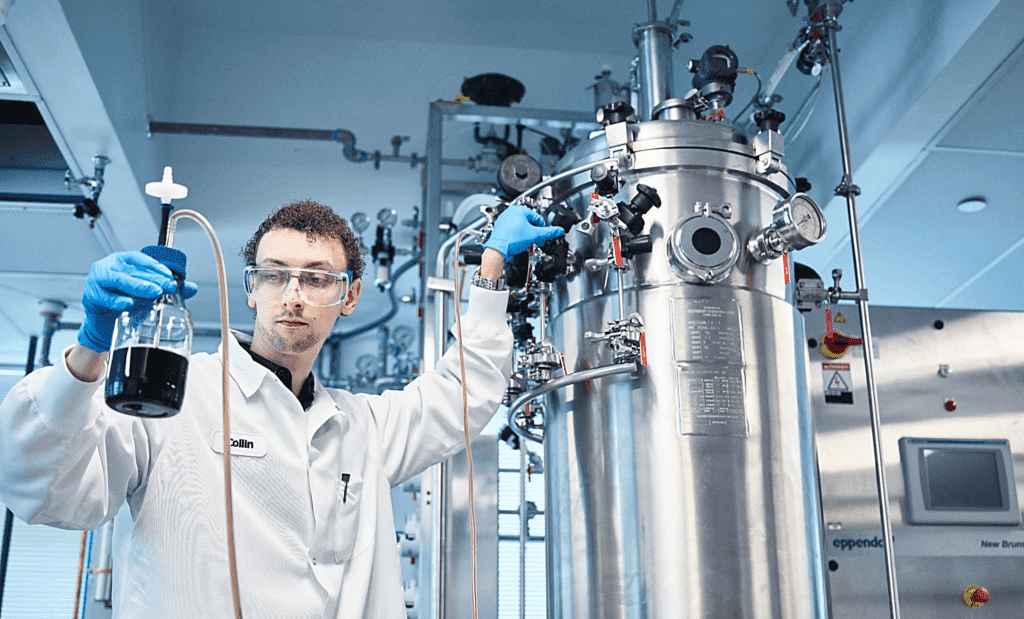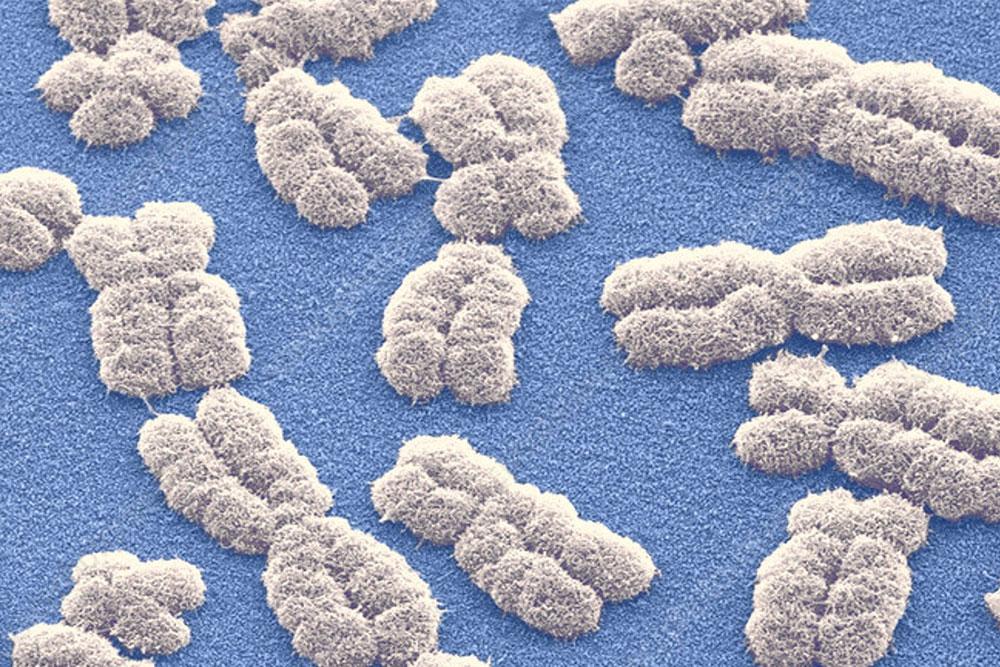Innovation in inflammation
 August 25, 2022 | Cambridge, MA, USA
August 25, 2022 | Cambridge, MA, USA 
Guest Author: Dr. Simba Gill, Chief Executive Officer, Evelo Biosciences
Inflammation has been called the silent killer. It is one of the main causes of diseases and conditions affecting billions of people all over the world.
The list of inflammatory diseases includes everything from common conditions like asthma, Alzheimer’s and allergies, to debilitating diseases like psoriasis, inflammatory bowel disease and neuroinflammatory diseases.
In addition, inflammation plays a key role in some of the world’s leading causes of death, such as cancer, heart disease and diabetes. Recent research has even suggested that the process of ageing itself, along with its associated pathologies, is driven by persistent inflammation[1].
Of course, every disease is different and affects patients in different ways. But all these diseases and conditions are characterized by systemic inflammation – and all have a considerable, negative impact on the lives of billions of people across the globe.

Starting with the skin
Two of the most prevalent, chronic inflammatory diseases that cause pain for millions of patients are skin conditions: psoriasis and atopic dermatitis.
The US National Psoriasis Foundation defines psoriasis as “an immune-mediated disease that causes inflammation in the body”.

The World Health Organization’s Global Report on Psoriasis[2] estimates there are over 100 million people who suffer from psoriasis across the globe. Symptoms often start between the ages of 15 and 25 and affect men, women and children of all ethnic groups. Inflammation caused by psoriasis can also affect other organs and tissues in the body.

Atopic dermatitis, or eczema, is a type of inflammatory skin disease that disrupts the skin barrier and its ability to hold moisture. According to the World Allergy Organization, it affects between 5%-30% of children and 1%-10% of adults globally[3].
Characterized by dry, intensely itchy skin, atopic dermatitis affects people of all ages, but most often begins in infancy and early childhood, with some people suffering lifelong symptoms.
Atopic dermatitis can also occur alongside other atopic diseases, such as food allergy, asthma, and allergic rhinitis, which are all associated with a Th2 inflammatory imbalance.
Most psoriasis and atopic dermatitis patients are classed as having mild or moderate disease. In the United States, roughly 93% of psoriasis patients and 85% of atopic dermatitis patients have either mild or moderate disease, with similar distributions serious throughout the world. The terms mild and moderate are misleading as these diseases have serious impacts on the lives of sufferers.
Misleading labels
The disease severity labels of ‘mild’, ‘moderate’, and ‘severe’ are defined by how much of a patient’s body is affected. They do not necessarily reflect the severity of the impact the condition has on the life of a patient. Even a “mild” psoriasis or atopic dermatitis diagnosis can be a serious condition. The lesions are often highly visible and can be painful, with cracked skin, bleeding, and persistent itchiness, often on very inconvenient areas of the body including hands, feet and the groin/genital area. These can often impact sufferers’ lives and livelihoods.
People who suffer from psoriasis and atopic dermatitis report a significant impact on their quality of life and mental health. In one survey[4], around 65% of patients with mild psoriasis said the diseases had a moderate to high impact on their daily life. This has been estimated to be greater than the impact of diabetes, cardiovascular disease, and even some cancers.

It is an unfortunate truth that if you suffer from psoriasis or atopic dermatitis, you are more likely to suffer from co-morbidities, such as psoriatic arthritis, asthma or allergies, as well increased risk for adverse cardiovascular events. People with mild psoriasis or mild atopic dermatitis also have a higher risk of depression, psoriatic arthritis and metabolic syndrome than people who do not suffer from these diseases. Similarly, due its chronic nature and frequency of flare-ups, atopic dermatitis is associated with a substantial physical and mental health burden not only on patients themselves, but also their families.
Imperfect treatment models
Despite the global prevalence of these diseases and the significant impact they have on millions of lives, current treatment options are far from ideal. Patients with mild or moderate psoriasis or atopic dermatitis are usually treated with topical medications- treatments applied directly to the skin in the locations where symptoms occur.

These are often inconvenient, awkward and time-consuming to apply, which leads to poor adherence and reduced effectiveness. Importantly topical treatments have no effect on the significant disease effects inside the body.
Other than topical medications, treatments are limited. For patients with severe symptoms, treatments like injectable antibody therapies or systemic immunosuppressants may be available, but these options are generally not accessible, or suitable, for those with mild or moderate disease – which is most sufferers. Not to mention the high costs and in some cases tolerability issues, such as gastro-intestinal problems, that are often involved in accessing these types of treatment options.
Even for those suffering from moderate to severe symptoms, the segment where most novel systemic therapies are approved, factors including safety, convenience, and high cost mean these treatments are not accessible for many people.

In the US, for example, innovative psoriasis and atopic dermatitis products can cost between US$ 40,000 and US$ 80,000 per person, per year. The high cost is one of the reasons why, even in the US, where access to innovative therapies is much higher than other regions of the world, it is estimated that less than 8% of patients with psoriasis and less than 2% of patients with atopic dermatitis have received these treatments, while approximately 50% of psoriasis and atopic dermatitis patients are not treated with any prescription therapy. Outside the US, even fewer patients have access to these medicines.
Responding to the needs of patients
Topical therapies have long been the default treatment option for psoriasis and atopic dermatitis sufferers. But even if these treatments are applied regularly and effectively, the fact remains that they only treat the superficial skin symptoms of these diseases, while leaving untreated the underlying systemic inflammation that characterizes these conditions.
Oral immunosuppressants do address this systemic inflammation, but often at the cost of issues around safety concerns, monitoring requirements, and tolerability issues, including diarrhea and nausea. Similarly, the use of injectable antibody therapies, the other main treatment option especially for moderate and severe cases, is limited by factors including the need to administer by injection, the potential for immunosuppression, and the high costs involved, as outlined above.
There is a clear need, therefore, for an effective, safe, well-tolerated, and affordable oral medicine that resolves the systemic inflammation at the core of psoriasis and atopic dermatitis, while avoiding the drawbacks of and concerns with existing treatment options. Such a therapy could expand the addressable patient population, allowing hundreds of millions of sufferers around the world to access effective treatment.

Pioneering a new approach towards psoriasis and atopic dermatitis treatment

This is one of the challenges we are focused on at Evelo.
We are proud to be working to find a better way to treat psoriasis and atopic dermatitis that resolves the systemic inflammation at the very core of these (and many other) diseases through an affordable, volume-based model that ensures treatment is effective, safe, well tolerated and affordable – making it accessible to the largest possible number of patients across the globe.

In March 2021, we signed a collaboration agreement with Abdul Latif Jameel Health to develop and commercialize our lead inflammation product candidate EDP1815 in select markets in the Middle East, Turkey, and Africa, serving over 1.7 billion people.
Evelo is Abdul Latif Jameel Health’s first biotechnology collaborator working to create effective and affordable medicines.

The partnership came two years after the Life Sciences Fund of the Jameel Investment Management Company (JIMCO) participated in a Series B post-IPO equity investment in Evelo Biosciences.
EDP1815 is an investigational oral medicine being developed for the treatment of inflammatory diseases. Trials so far are extremely positive.
Data from Phase 2 clinical trials of EDP1815 suggests its potential to be a safe, efficacious, oral, affordable, and room-temperature stable medicine that may be useful to treat patients worldwide at all stages of inflammatory disease.
Based on our SINTAX platform, EDP1815 is part of a new class of orally delivered medicines we are developing that act on cells in the small intestine to exert therapeutic effects throughout the body, as cells in the small intestine play a central role in governing the immune, metabolic, and neurological systems.
The SINTAX platform enables us to send messages from the small intestine to the rest of the body to reduce or prevent inflammation, as well as many other physiological functions. Data show that SINTAX based medicines have meaningful clinical effects.

Our initial focus is on easing the suffering of literally hundreds of millions of psoriasis and atopic dermatitis sufferers across the world. But one of the huge advantages of our SINTAX platform is that the approach can be used to develop new treatment pathways for a vast range of diseases and conditions, from asthma, arthritis and allergies to inflammatory bowel disease, neurogenerative conditions such as multiple sclerosis, and possibly Parkinson’s and Alzheimer’s disease.

To leverage the full potential of SINTAXmedicines across different biologies and diseases, we are also developing our next generation of product candidates, based on microbial extracellular vesicles (EVs).

These are presently in preclinical development, where we have already demonstrated the positive effects of orally-delivered pharmaceutical preparations of bacterial EVs from single strains.
This combination of Evelo’s leading-edge science and Abdul Latif Jameel Health’s investment, support and reach, should provide the best possible opportunity to progress these exciting products along their clinical pathways to improve the medical treatment for millions of people across globe.
[1] https://www.nature.com/articles/s41574-018-0059-4
[2] https://apps.who.int/iris/bitstream/handle/10665/204417/9789241565189_eng.pdf.psoriasis?sequence=1
a Armstrong AW, Robertson AD, Wu J, Schupp C, Lebwohl MG. Undertreatment, Treatment Trends, and Treatment Dissatisfaction Among Patients With Psoriasis and Psoriatic Arthritis in the United States: Findings From the National Psoriasis Foundation Surveys, 2003-2011. JAMA Dermatol. 2013;149(10):1180–1185. doi:10.1001/jamadermatol.2013.5264
[3] https://www.worldallergy.org/UserFiles/file/WAOAtopicDermatitisInfographic2018.pdf
Related Articles
For press inquiries click here, or call +971 4 448 0906 (GMT +4 hours UAE). For public inquiries click here.












